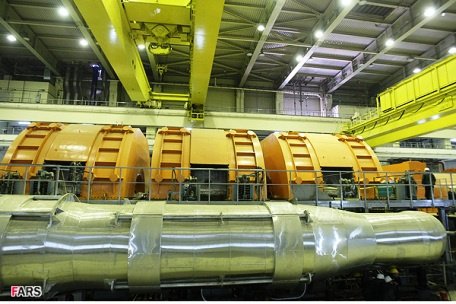Rods for Independence

IRD: A year before the last round of nuclear negotiations in early 2011, Iran had experienced a failure in negotiations with the West over receiving nuclear fuel for the Tehran nuclear reactor geared to medical purposes. Now, amid murmurs about resumption of nuclear negotiations with the West, Iran has announced successful production and testing of the first sample of domestically made nuclear fuel rods. Iran's Organization of Atomic Energy has announced that after passing all tests successfully, the rods have been implanted in the heart of the Tehran research reactor to test its performance in operational settings. The magnitude of the achievement and its impact in the future negotiations between the West and Tehran, plus possible reactions by Iran's negotiations’ partners are reviewed by Sadeq Rabbani, former deputy president of Iran's Atomic Energy Organization:
The production of these rods is another part of the nuclear fuel cycle technology. In terms of importance, fuel rod manufacturing stands below enrichment since it does not need application of a sophisticated technology. The international community –especially the permanent members of the UN Security Council- hit a nerve when Iran announced its mastery of the nuclear enrichment process. In the meantime, the fuel rods produced by Iranian scientists have medical usage for Tehran's research reactor. Teamed up with the 20-percent enriched uranium, the rods will provide material needed in nuclear medicine.
Tehran research reactor’s serves research and medical purposes. Nearly two years ago, Iran announced that the reactor’s fuel had been virtually consumed and there was an urgent need for 20-percent uranium to keep operations in the center running. In the face of West’s refusal to provide Iran with the fuel, and the dire medical state of Iranian patients, Iran started producing the material itself. Iran's decision provoked negative reaction among the Western countries, particularly the US. The negotiations for providing Iran with enriched uranium had already failed due to irresoluble differences in the 2009 Vienna negotiations.
At that time, Ali-Akbar Salehi, then head of the AEOI, announced that if the world refused to provide Tehran with the reactor fuel, Iran would set for domestic production of enriched uranium. The production of the rods will solve Iran’s dependency on foreign countries, though Tehran preferred to import the material instead of undertaking the burden of mastering its know-how.
As usual, Western countries have cast doubts over Iran's claim of achieving the technology of nuclear fuel rod production. The reaction is of course rooted in their general lack of knowledge about Iran's capabilities, whether in its nuclear program or other polices; hence GOP presidential hopeful Mitt Romney warning about Tehran's new “dangerous” capability, while experts know that mastering the technology of nuclear fuel rods is not as important as the enrichment know-how.
Iran's new feat may attract further attention towards’ its nuclear case. Although Moscow has taken several negative measures against Tehran's nuclear program (including its notorious procrastination of the Bushehr civilian nuclear power plant construction, the step-by-step initiative proposed by the country is a positive offer; and although opposed by some Iranian authorities, Foreign Minister Salehi has viewed it as logical.

